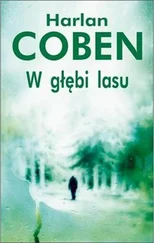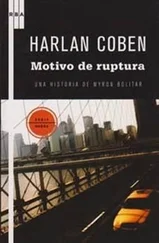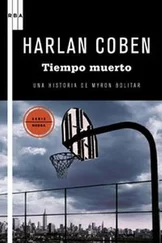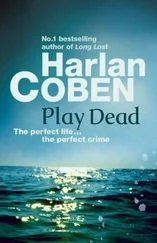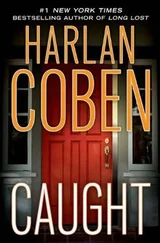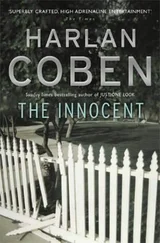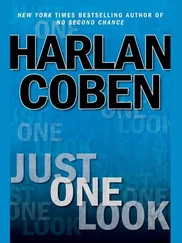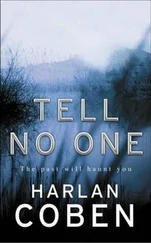Harlan Coben - Six Years
Здесь есть возможность читать онлайн «Harlan Coben - Six Years» весь текст электронной книги совершенно бесплатно (целиком полную версию без сокращений). В некоторых случаях можно слушать аудио, скачать через торрент в формате fb2 и присутствует краткое содержание. Год выпуска: 2013, ISBN: 2013, Издательство: Orion, Жанр: Старинная литература, на английском языке. Описание произведения, (предисловие) а так же отзывы посетителей доступны на портале библиотеки ЛибКат.
- Название:Six Years
- Автор:
- Издательство:Orion
- Жанр:
- Год:2013
- ISBN:9781409144571
- Рейтинг книги:5 / 5. Голосов: 1
-
Избранное:Добавить в избранное
- Отзывы:
-
Ваша оценка:
- 100
- 1
- 2
- 3
- 4
- 5
Six Years: краткое содержание, описание и аннотация
Предлагаем к чтению аннотацию, описание, краткое содержание или предисловие (зависит от того, что написал сам автор книги «Six Years»). Если вы не нашли необходимую информацию о книге — напишите в комментариях, мы постараемся отыскать её.
Six Years — читать онлайн бесплатно полную книгу (весь текст) целиком
Ниже представлен текст книги, разбитый по страницам. Система сохранения места последней прочитанной страницы, позволяет с удобством читать онлайн бесплатно книгу «Six Years», без необходимости каждый раз заново искать на чём Вы остановились. Поставьте закладку, и сможете в любой момент перейти на страницу, на которой закончили чтение.
Интервал:
Закладка:
I shook my head, trying to clear it. It was pitch-dark. I was lying in shrubbery of some kind. For a moment I flashed back to my freshman year of college, that time I ended up in a bush after a night of too much inexperienced drinking.
“What’s your name, sir?” the cop asked.
“Jake Fisher.”
“Mr. Fisher, have you been drinking tonight?”
“I was attacked,” I said.
“Attacked?”
“Two men with guns.”
“Mr. Fisher?”
“Yes?”
The cop had that condescending-patient-cop tone. “Have you been drinking tonight?”
“I was. Much earlier.”
“Mr. Fisher, I’m State Trooper John Ong. You appear to have some injuries. Would you like us to take you to a hospital?”
I was trying hard to focus. Every brain wave seemed to travel through some kind of shower-door distortion. “I’m not sure.”
“We will call for an ambulance,” he said.
“I don’t think that’s necessary.” I looked around. “Where am I?”
“Mr. Fisher, may I see some identification, please?”
“Sure.” I reached into my back pocket, but then I remembered that I had tossed my wallet and phone into the front passenger seat next to Bob. “They stole it.”
“Who?”
“The two men who attacked me.”
“The guys with the guns?”
“Yes.”
“So it was a robbery?”
“No.”
The images flashed across my eyes—my forearm against Otto’s neck, the box cutter in his hand, the tool chest, the handcuff, that naked, horrible, paralyzing fear, the sudden stop, the squelching sound as his windpipe collapsed like a twig. I closed my eyes and tried to make them go away.
Then, almost more to myself than State Trooper Ong, “I killed one of them.”
“Excuse me?”
There were tears in my eyes now. I did not know what to do. I had killed a man, but it had been both an accident and in self-defense. I needed to explain that. I couldn’t just keep that to myself. I knew better. Many of the students who majored in political science were also pre-law. Most of my fellow professors had even gotten their JDs and passed the bar. I knew a lot about the Constitution and rights and how our legal system worked. In short, you need to be careful about what you say. You cannot “unring” that bell. I wanted to talk. I needed to talk. But I couldn’t just blurt out admissions of murder.
I heard sirens and saw the ambulance pull up.
State Trooper John Ong shone the light back in my eyes. That couldn’t have been an accident. “Mr. Fisher?”
“I’d like to call my attorney,” I said.
* * *
I don’t have an attorney.
I am a single college professor with no criminal record and very few resources. What would I need an attorney for?
“Okay, I have good news and bad news,” Benedict said.
I had instead called Benedict. Benedict wasn’t a member of the bar, but he had gotten a law degree at Stanford. I sat on one of those gurneys covered with what seemed to be butcher paper. I was in the ER of a small hospital. The doctor on duty—who looked almost as exhausted as I felt—had told me that I had probably suffered a concussion. My head ached like it. I also had various contusions, cuts, and maybe a sprain. He didn’t know what to make of the teeth marks. With the adrenaline spikes ebbing away, the pain was gaining ground and confidence. He promised to prescribe some Percocet for me.
“I’m listening,” I said.
“The good news is, the cops think you’ve gone completely nuts and don’t believe a word of what you say.”
“And the bad news?”
“I tend to agree with them, though I add the strong possibility of an alcohol-induced hallucination.”
“I was attacked.”
“Yes, I get that,” Benedict said. “Two men, guns, a van, something about power tools.”
“Tools. No one said anything about power.”
“Right, whatever. You also drank a lot and then you got some strange.”
I pulled up my calf to reveal the bite mark. “How do you explain that?”
“Wendy must have been wild.”
“Windy,” I corrected him. This was pointless. “So what now?”
“I don’t like to brag,” Benedict said, “but I have some top-drawer legal advice for you, if you’d like to hear it.”
“I do.”
“Stop confessing to killing another human being.”
“Wow,” I said, “and you didn’t want to brag.”
“It’s also in a lot of the law books,” Benedict said. “Look, the license plate number you gave? It doesn’t exist. There is no body or signs of violence or a crime—only a minor misdemeanor because you, admittedly drunk, trespassed into a man’s backyard by falling down a hill. The cops are willing to let you go with just a ticket. Let’s just get home and then we can figure it out, okay?”
It was hard to argue with that logic. It would be wise for me to get out of this place, to get back on campus, to rest and regroup and recover, to consider everything that had happened in the sober light of familiar day. Plus, I had taught Constitution 101 one semester. The Fifth Amendment protects you against self-incrimination. Maybe I should use that right now.
Benedict drove. My head spun. The doc had given me a shot that had lifted me up and dropped me in the middle of Loopy Land. I tried to focus, but putting aside the drinking and drugs, the threat to life was hard to shake. I had literally had to fight for survival. What was going on here? What could Natalie have to do with all this?
As we pulled into the staff parking lot, I saw a campus police car near my front door. Benedict looked a question at me. I shrugged and stepped out of the car. The head rush as I stood nearly floored me. I made my way to a standing position and started gingerly up the path. Evelyn Stemmer was the head of campus security. She was a petite woman with a ready smile. The ready smile wasn’t there right now.
“We’ve been trying to reach you, Professor Fisher,” she said.
“My cell phone was stolen.”
“I see. Do you mind coming with me?”
“Where?”
“President’s house. President Tripp needs to speak with you.”
Benedict stepped between us. “What’s this about, Evelyn?”
She looked at him as though he’d just plopped out of a rhino’s rectum. “I’d rather let President Tripp do the talking. Me, I’m just an errand girl.”
I was too out of it to protest. What would be the point anyway? Benedict wanted to come with us, but I really didn’t think it would behoove my position to have my best friend visit my boss with me. The front seat of the campus police car had some kind of computer in it. I had to sit in the back like a real-life perp.
The president lived in a twenty-two-room, 9,600-square-foot stone residence, done up in a style that the experts called “restrained Gothic Revival.” I was not sure what that meant, but it was a pretty impressive structure. I also didn’t see the need for the squad car—the villa sat on a hilltop overlooking the athletic fields, maybe four hundred yards from the staff parking lot. Fully renovated two years ago, the home could now play host to not only the president’s young family but, more importantly, to a full potpourri of fund-raising events.
I was escorted into an office that looked exactly like a college president’s office, just sleeker and more polished. Come to think of it, so did the new president. Jack Tripp was sleek and polished and corporate with floppy hair and capped teeth. He tried to fit in by dressing in tweed, but the tweed was far too tailored and costly to be bona fide professorial. His patches were too evenly cut. The students derisively referred to him as a “poser.” Again I wasn’t sure exactly what that meant, but it seemed apropos.
Читать дальшеИнтервал:
Закладка:
Похожие книги на «Six Years»
Представляем Вашему вниманию похожие книги на «Six Years» списком для выбора. Мы отобрали схожую по названию и смыслу литературу в надежде предоставить читателям больше вариантов отыскать новые, интересные, ещё непрочитанные произведения.
Обсуждение, отзывы о книге «Six Years» и просто собственные мнения читателей. Оставьте ваши комментарии, напишите, что Вы думаете о произведении, его смысле или главных героях. Укажите что конкретно понравилось, а что нет, и почему Вы так считаете.


